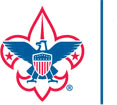Scout Skills
The following skills are at the core of what it means to be a Scout. Each one helps build confidence, leadership, and self-reliance. Click on the headings to explore more in-depth information, videos, and resources related to each skill.
Camping
Camping is one of the most exciting aspects of Scouting, where you’ll learn how to live in the outdoors safely and comfortably. From setting up a tent to building a fire, these skills ensure that you’re prepared for anything nature throws your way. Mastering camping fundamentals allows Scouts to enjoy the wilderness while minimizing impact on the environment.
First Aid
Knowing how to treat injuries and handle emergencies is a critical skill for Scouts. First aid training covers how to assess and care for a range of situations, from minor cuts and scrapes to more serious incidents like broken bones or hypothermia. Every Scout learns how to take quick action to help others in need.
Navigation
Scouts develop strong navigation skills, learning how to read maps, use a compass, and even navigate by the stars. Whether on a hike or planning a pioneering project, understanding the terrain and knowing how to stay on course is essential for outdoor success. These skills foster confidence and awareness in new environments.
Knots & Lashings
Tying knots and lashings is fundamental to many Scouting activities. From securing tents and tarps to constructing camp gadgets and pioneering structures, mastering these rope skills ensures safety and efficiency. Scouts learn to tie key knots like the bowline, square knot, and clove hitch, as well as complex lashings for building tripods or towers.
Fire Building
The ability to safely build and maintain a fire is one of the most vital outdoor skills Scouts learn. Fire provides warmth, cooking, and light, but it also requires responsibility. Scouts practice different fire-building techniques, understand fire safety protocols, and learn how to minimize environmental impact while enjoying this primitive skill.
Cooking
Outdoor cooking teaches Scouts how to prepare delicious meals in the wilderness. With skills ranging from using a camp stove to mastering Dutch oven recipes over an open fire, cooking helps Scouts become self-sufficient and ensures that everyone stays well-fed during outdoor adventures.
Orienteering
Orienteering combines map reading with cross-country navigation in a timed setting, challenging Scouts to use their wits and skills to find various checkpoints. This activity teaches problem-solving, physical fitness, and perseverance as Scouts develop their ability to navigate through unknown terrain using only a map and compass.
Pioneering
Pioneering involves constructing large structures using poles and ropes, showcasing Scouts’ knowledge of lashings and knots. Scouts work together to build useful camp items, such as bridges, towers, or furniture. This hands-on skill requires teamwork, precision, and creativity.
Swimming & Water Safety
Scouts must be confident and safe in the water, whether they’re swimming in a pool or navigating a lake or river. Water safety skills include knowing how to perform rescues, float, and swim in various conditions. Learning these skills prepares Scouts for safe aquatic adventures and helps them earn key merit badges like Lifesaving and Swimming.
Wilderness Survival
Wilderness survival skills teach Scouts how to stay safe and resourceful in unexpected situations. From building shelters to finding food and water, these skills ensure that Scouts are prepared for emergency scenarios. Scouts learn how to stay calm, think critically, and use the resources available to survive in the wild.
These scout skills are key parts of the Scouting experience, and mastering them builds a foundation of leadership and preparedness. Click the links above to learn more about each skill.


